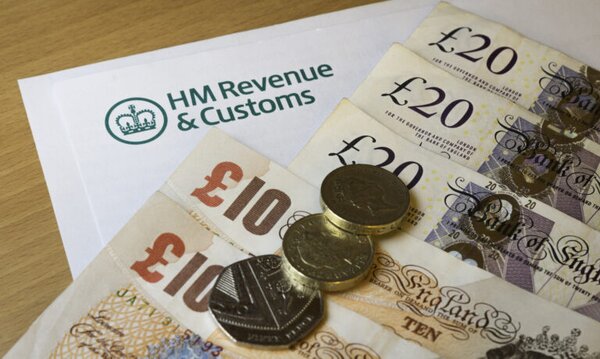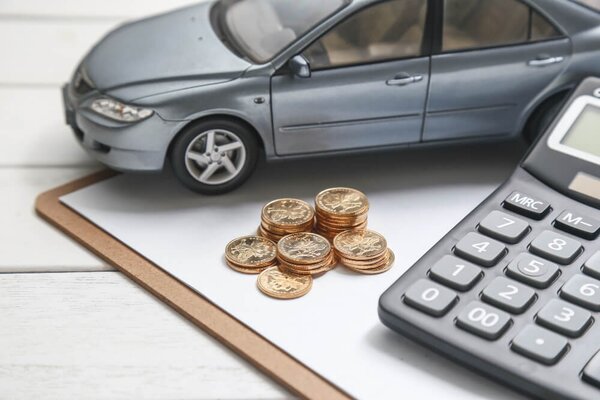Let’s Break This Down Together…
Selling on Depop and wondering if there’s some magical “30 item rule” that decides whether you owe tax?
From clearing out your wardrobe to running a full-on resale side hustle, it can be tricky to know when HMRC will treat you as a trader, and what that means for your tax bill.
Worried your Depop side hustle might land you with a surprise tax bill? The UK’s first personal tax app, Pie tax, helps you track your online sales income and allowances with ease. Or if you’re just here to get to grips with it all, let’s break it down!

What Actually is the HMRC "30 Item Rule" for Depop Sales?
Let’s clear something up straight away – there is no official “30 item rule” from HMRC. This is a myth that’s been circulating among online sellers.
What HMRC actually looks at is whether your selling activity counts as “trading”. The number of items you sell is just one factor they consider.
The most important threshold to know about is the £1,000 trading allowance. If your gross trading income stays under this amount in a tax year, you don’t need to tell HMRC about it.
If you’re regularly buying items specifically to sell them on Depop for profit, HMRC might consider you a trader. This applies regardless of how many items you’ve sold.
However, if you are just selling personal possessions occasionally, such as unwanted clothes or items you no longer need, this is not considered trading and usually does not result in a tax liability.
The new reporting requirements for online platforms do not introduce a new tax; they simply require platforms to share data with HMRC.
How HMRC Decides if Online Sellers Are Trading on Depop
HMRC uses something called “badges of trade” to decide if your Depop activity is casual selling or actual trading. It’s not just about item numbers.
If you’re selling clothes you no longer want from your own wardrobe occasionally, that’s typically considered casual selling. This wouldn’t normally be classified as trading.
There’s a clear difference between trading and just occasionally selling items, if you are only selling your personal possessions from time to time, HMRC does not usually consider this to be trading.
However, if you’re buying stock to resell or modifying items to increase their value, HMRC will likely view this as trading. Selling regularly with the intention of making profit also suggests trading activity.
The frequency and pattern of your sales matter too. Selling 50 items spread over a year might be fine, but selling 20 items every month suggests you’re running a business.
The £1,000 Trading Allowance: Your Safety Net
The trading allowance gives you your first £1,000 of trading income tax-free each tax year. This is often the most relevant rule for casual Depop sellers.
If your gross trading income is under £1,000 for the tax year, you don’t need to register for Self Assessment. You don’t need to tell HMRC about this income.
Remember this allowance covers all your trading activities combined. This includes not just Depop but also other platforms like eBay, Vinted or any other side hustles.
Once your gross trading income exceeds £1,000, you must register for Self Assessment. Additional income from online selling that goes over this allowance may be taxable and needs to be reported to HMRC. You need to report your income, even if after expenses you’ve made a loss.

HMRC's Badges of Trade Explained
HMRC looks at several factors (badges of trade) to determine if you’re trading. Your profit motive is key, are you selling specifically to make money?
The frequency of transactions matters significantly. Occasional sales suggest casual selling, while regular weekly sales point to trading.
How long you owned the items before selling them is considered too. Selling a dress you’ve had for years differs from buying something and flipping it a week later.
I once helped a client who’d been selling her old designer clothes. When she started buying charity shop items to resell, HMRC classified her as trading despite selling fewer than 30 items monthly.
HMRC also considers if you’re making modifications to items before selling them. Upcycling vintage clothes or making repairs to increase value suggests trading activity.
Selling services online, such as offering freelance work or digital products through platforms, can also be considered trading. Providing a paid for service may trigger tax obligations and require you to register for Self Assessment if your earnings exceed certain thresholds.
Sales Data and Reporting: What Depop Sellers Need to Know
If you sell on Depop, it’s important to be aware of the new sales data and reporting requirements that came into effect in January 2025.
Under these new rules, online platforms like Depop are now legally required to share sales data with HMRC for users who have sold at least 30 items or earned roughly £1,700 in a tax year.
This new process is designed to help HMRC ensure that online sellers are meeting their tax responsibilities and paying the correct amount of income tax.
If you reach this threshold, Depop will notify you that your sales data is being shared with HMRC. While this doesn’t automatically mean you’ll need to pay tax or complete a tax return, it does mean you should review your tax position carefully.
If you’re trading or providing services online, whether that’s selling goods, offering a service, or letting out a holiday home, you may need to register for Self Assessment and pay income tax on your profits.
To work out if you need to complete a Self Assessment tax return, consider your total income from all online sales, including any profit from selling unwanted items online.
Remember, the £1,000 trading allowance applies across all your online selling activities, not just Depop. If your total income from trading or providing services online exceeds this allowance in a tax year, you may need to register for Self Assessment and pay tax on your profits.
It’s essential to keep accurate records of your sales and any expenses you can deduct, such as platform fees, postage, and packaging. This will make it easier to complete a tax return if required and ensure you only pay tax on your actual profits.
HMRC provides clear guidance on GOV.UK, and you can use the HMRC app or their online tools to check your tax obligations. If you’re unsure, you can always contact HMRC directly for detailed guidance.
These new legal obligations are part of a wider effort to make tax rules around online selling clearer and to help online sellers avoid unexpected tax bills or a tax investigation.
By understanding the reporting requirements and your responsibilities, you can confidently sell unwanted items online or provide services online, knowing you’re meeting your legal obligations.
In summary, if you sell goods or services through Depop or any other online platform, make sure you’re aware of the new reporting requirements, keep good records, and check whether you need to register for Self Assessment and pay income tax.
Staying informed and organised will help you comply with the law and avoid any surprises when it comes to your tax return.

When and How to Register for Self Assessment with HMRC
If your gross trading income exceeds £1,000 in a tax year, you need to register for Self Assessment. This must be done by 5th October following the tax year end.
You’ll need to keep records of all your sales and business expenses. This includes platform fees, packaging costs, and postage.
Your tax return must be submitted online by 31st January after the tax year ends. Any tax owed must be paid by the same date. Registering ensures you are paying tax if required, in line with your obligations.
If you’re unsure whether you need to register, it’s always better to register. This avoids the risk of penalties for undeclared income later on.
Common Misconceptions about Depop and Tax
Many sellers think that if they’re selling at a loss, they don’t need to worry about tax. If you’re trading, you still need to register if gross income exceeds £1,000.
Another myth is that selling personal items is always tax-free. While often true for casual selling, doing it regularly or buying to resell makes it taxable. Online traders, who sell goods or services through platforms like eBay, Vinted, or Airbnb, are subject to different rules and must follow specific tax regulations.
Some sellers believe each platform has its own £1,000 allowance. In reality, the allowance covers all your trading activities combined.
Platform fees, postage, and packaging can be deducted as business expenses. This reduces your taxable profit – but only if you’ve registered as trading.

Final Thoughts
Understanding your tax obligations as a Depop seller isn’t about counting items. It’s about recognising when your selling patterns cross into trading territory.
The £1,000 trading allowance provides a helpful buffer for casual sellers. Once you exceed this, you need to register with HMRC regardless of profit levels.
Keep detailed records of your Depop activities, even if you believe you’re just casually selling. The busiest time for tax filings is at the end of the tax year, so being prepared in advance can help you avoid last-minute stress. HMRC may request evidence if they investigate your tax affairs.
When in doubt, it’s always better to register for Self Assessment. This approach helps you avoid penalties for undeclared income.
Pie Tax: Simplifying Depop Online Sales Tax
Starting a Depop side hustle shouldn't mean getting tangled in tax confusion. The UK's first personal tax app, Pie tax, takes the stress away.
Our specialised assistant for online sellers guides you through expense tracking. This helps you claim for platform fees, packaging costs, and shipping, potentially reducing your tax bill.
With automated bookkeeping that connects directly to your bank account, you'll always know where you stand. Your Depop income and tax obligations remain clear and manageable.
Explore the Pie tax app if you'd like to see how we can make your online selling tax worries disappear.











